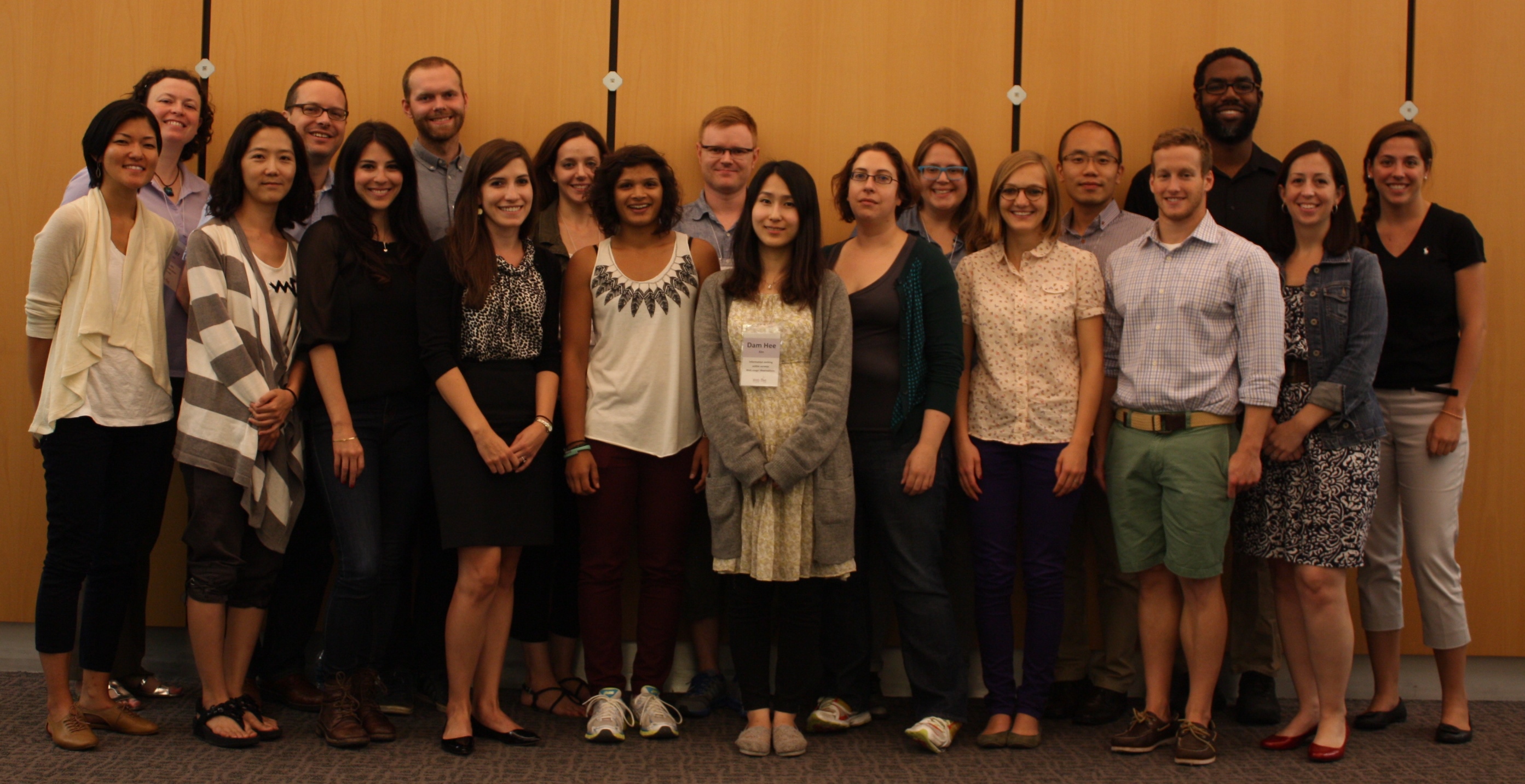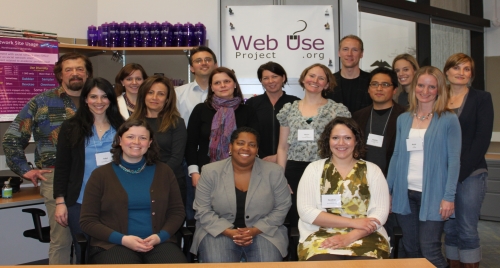Doctoral Workshop on Developing Digital Tools to Study Human Behavior in Online Environments - August 2013

Back row (left to right): Eszter Hargittai, Darren Gergle, Jacob Ørmen, Brooke Foucault Welles, Jeffrey Boast, Rachel Magee, Young-jin Kim, Deen Freelon, Rebecca Schieber
Front row: Naomi Sugie, Jinyoung Kim, Eden Litt, Kira Allman, Farzana Dudwhala, Dam Hee Kim, Kelly Bergstrom, Darja Groselj, Jonathan D'Angelo, Erin Klawitter
The Web Use Project in the School of Communication at Northwestern University hosted the three-day Doctoral Workshop on
Developing Best Practices for Using Digital Tools to Study Human Behavior in Online Environments from August 18-20, 2013
in Evanston, Illinois. The Alfred P. Sloan Foundation funded the entire cost of the workshop.
The workshop brought together twelve outstanding doctoral candidates and five mentors to discuss methodological best
practices for the in-depth study of human behavior in digital environments. While so-called "big data" offer lots of
opportunities to study the social world, using such data may miss insights that methods such as in-person observations
and interviews can discover. Bringing different types of data and methods together can help address challenges, such as
biased data sets, and can help glean new insights.
Workshop participants, who were selected through a competitive application process, shared information and insights
gleaned from their ongoing research projects. They discussed obstacles to collecting and analyzing the sort of “deep
data” useful to understanding human behavior in digital environments. Participants also outlined a variety of opportunities
for improving the in-depth study of human behavior in digital environments include developing and disseminating resources;
improving educational opportunities; creating opportunities for funding, personnel, and equipment; standardization; and
publishing.
Log-MOB Working Group Meeting - April 2011
Log Methods and Measures of Online Behavior (Log-MOB) Working Group Meeting
Log-MOB Working Group members present at the April, 2011 meeting
Back row (right to left): Jan van Dijk, Brooke Foucault-Welles, Marco Gui, Alexander van Deursen, Sandra Cortesi, Constance Steinkuehler
Middle row: Eden Litt, Dania Bilal, Veronika Karnowski, Brigid Barron, Moira Burke, Andrés Monroy-Hernández, Anne Aula
Front row: Eszter Hargittai, Nichole Pinkard, Heather Young
On April 14-15, 2011, the Web Use Project hosted a group of 17 international scholars with a wide range of research
interests who share a common methodology: the use of log data in combination with observational methods to study
behavior in a variety of online contexts. While several researchers, including those affiliated with the Web Use
Project, use such methods to study information-seeking online, other scholars use these methods to study behavior
in online communities, virtual worlds, and games. The meeting was held to bring together members of the Log Methods
and Measures of Online Behavior (Log-MOB) Working Group, funded by a grant awarded to Eszter Hargittai by the Digital
Media and Learning Hub at the University of California, Irvine through the support of the John D. and Catherine T.
MacArthur Foundation.
The goal of the group made up of international scholars representing both academic institutions and industry is to
encourage conversations about, sharing of, and collaboration regarding new methods required for such research. The
hope is that researchers can develop methodological approaches that can be replicated by others, that they document
methodological details carefully for sharing, and that they start using standardize measures that can facilitate
comparison of findings across studies. Building a community of scholars whose experiences with such methods can be
shared will avoid the need to reinvent the wheel each time researchers launch a new study in this area.
This initial meeting inspired discussions among scholars about how best to prepare, gather, and analyze data, share
information, and evaluate the work of others. Members also decided on a name for the methodology which will facilitate
easier identification of other scholars using similar methods, “log methods and measures of online
behaviors” (Log-MOB). Attendees were enthused about the prospect of future meetings at which further discussions
about best practices in Log-MOB will take place.
